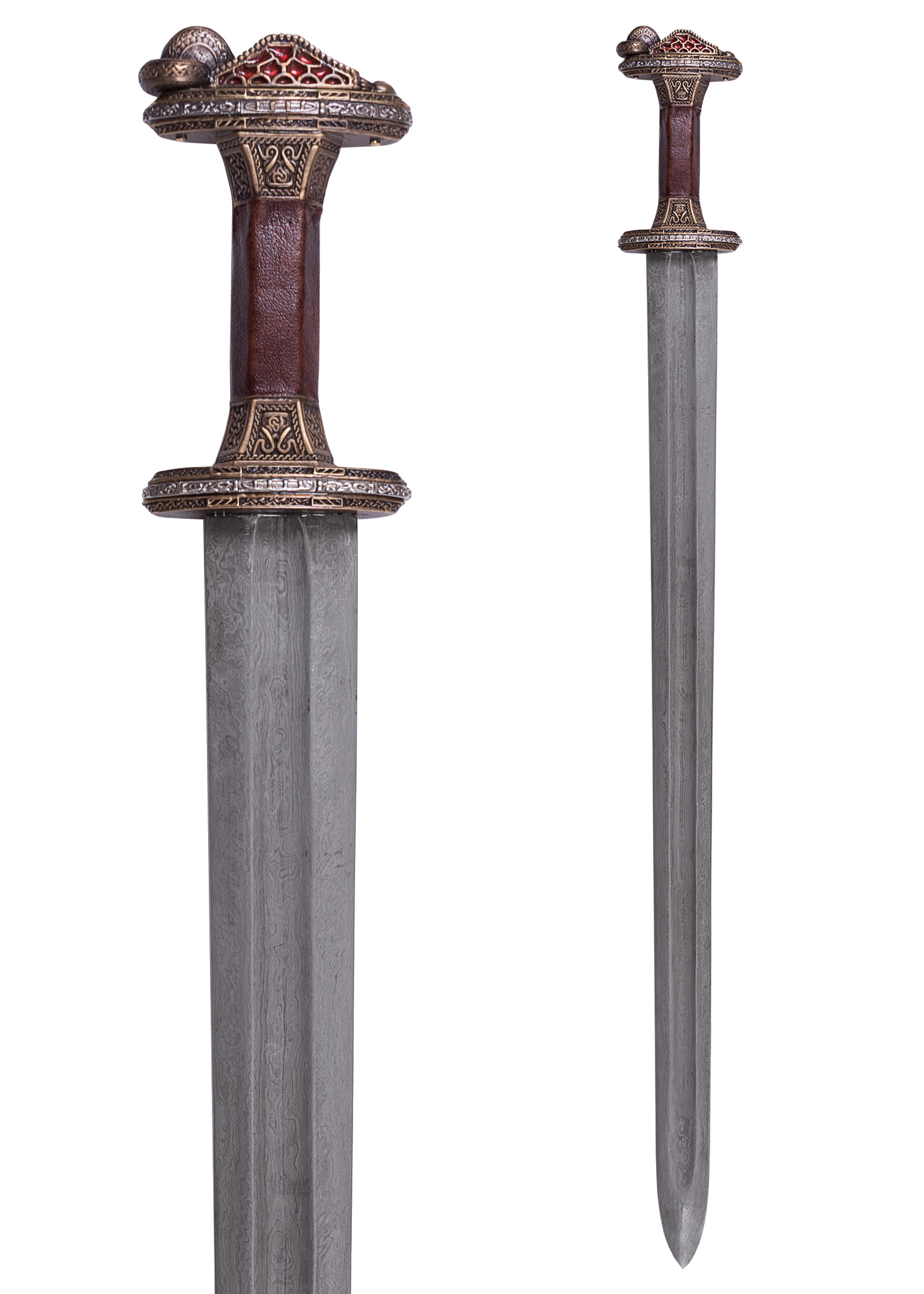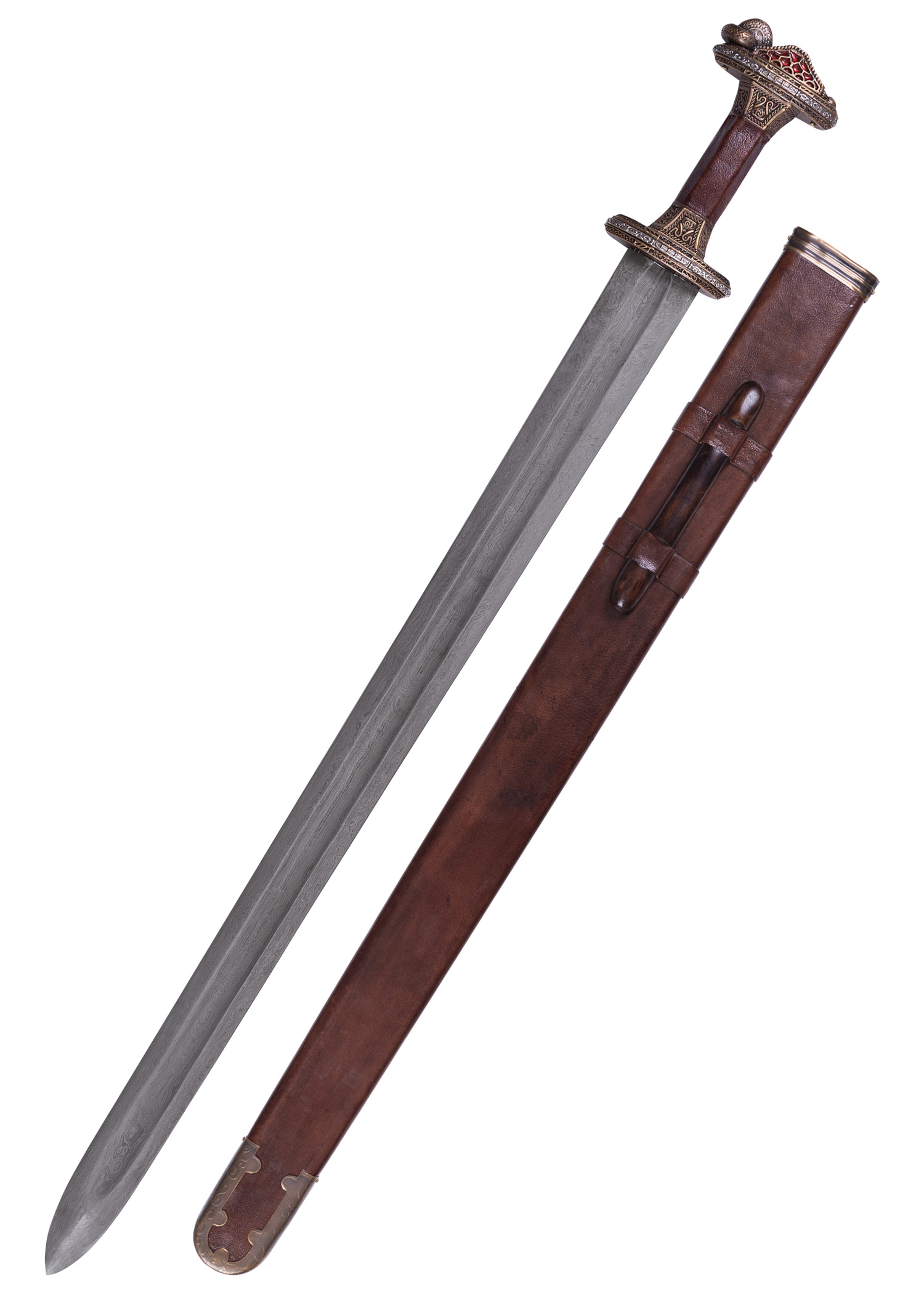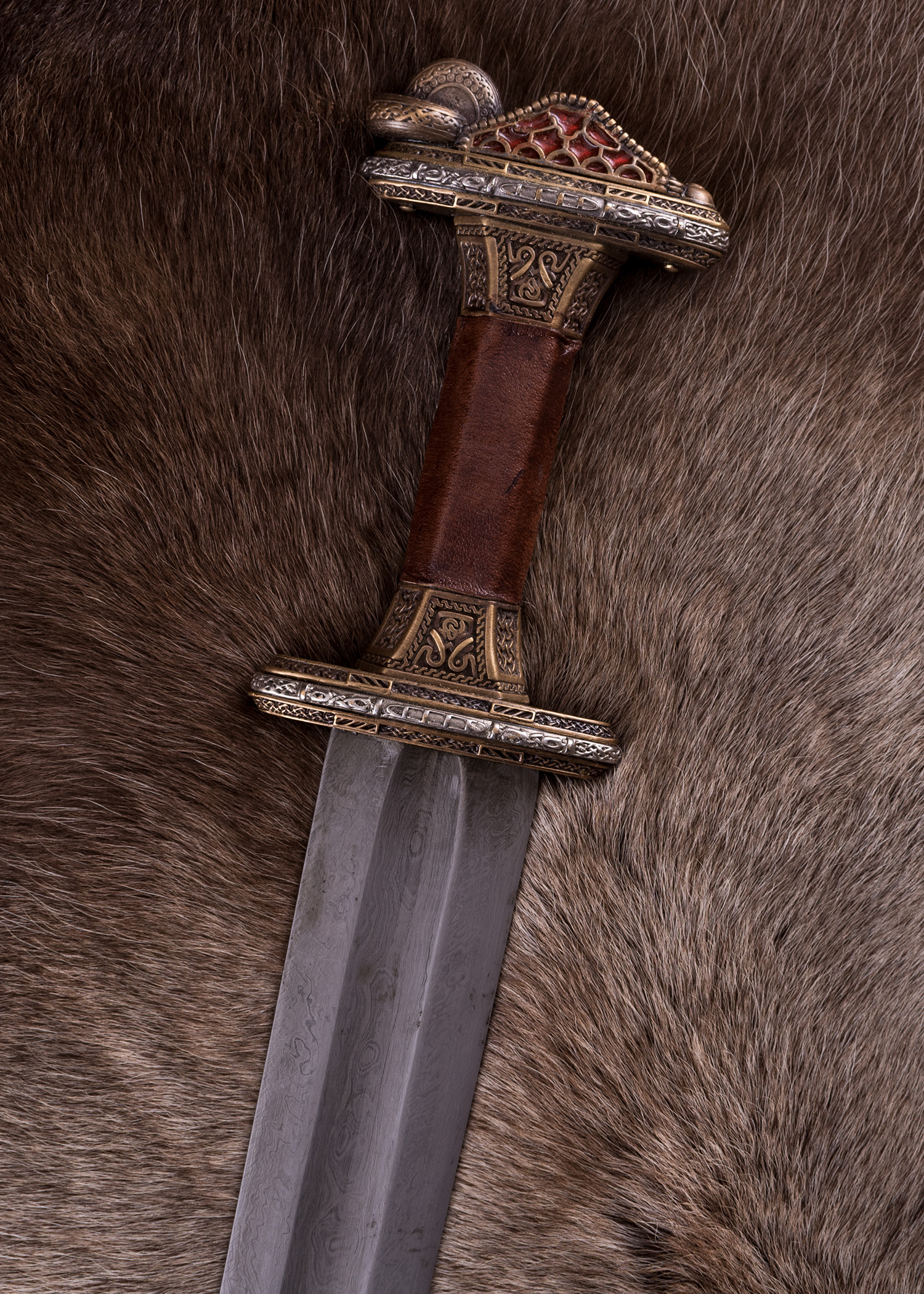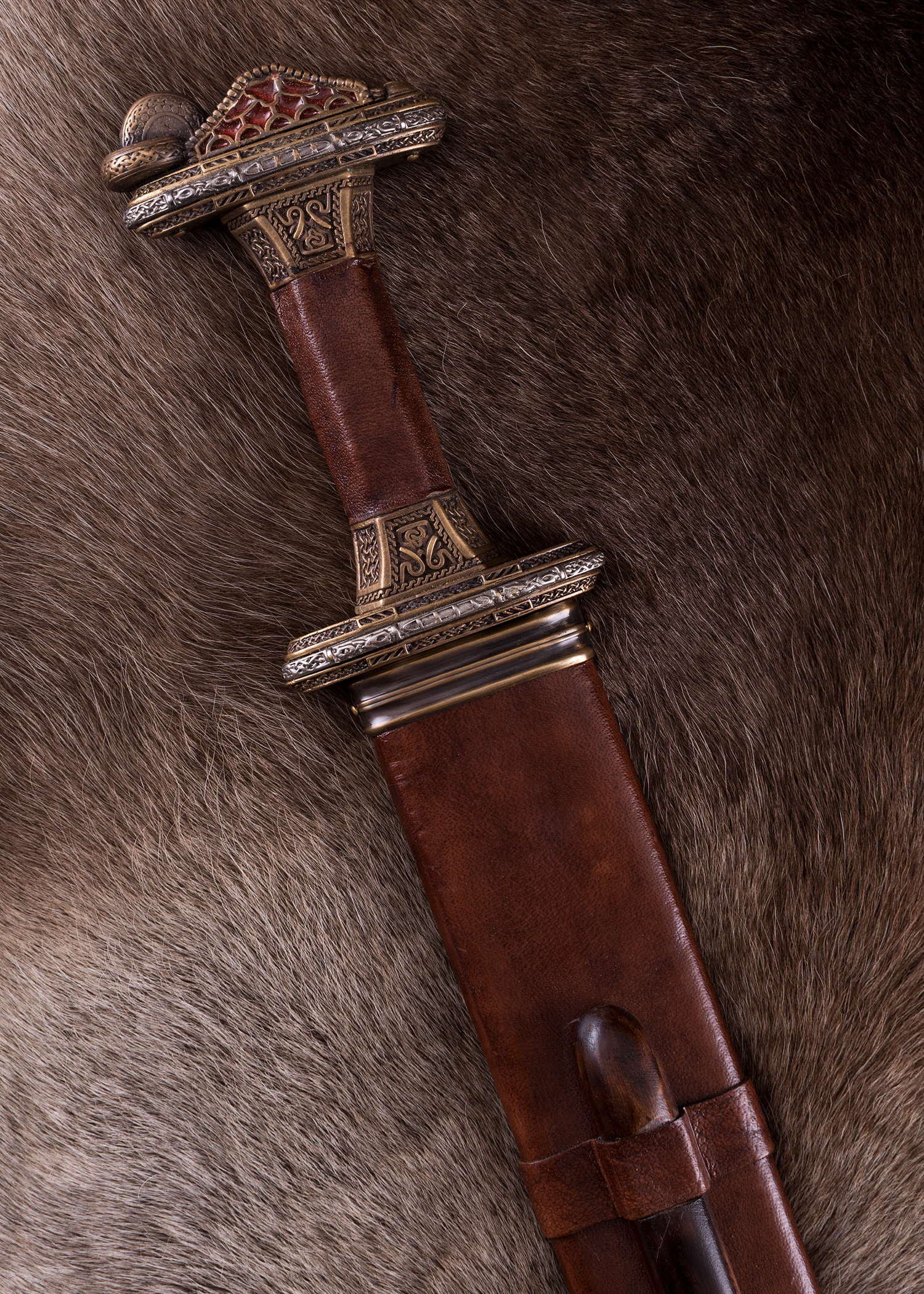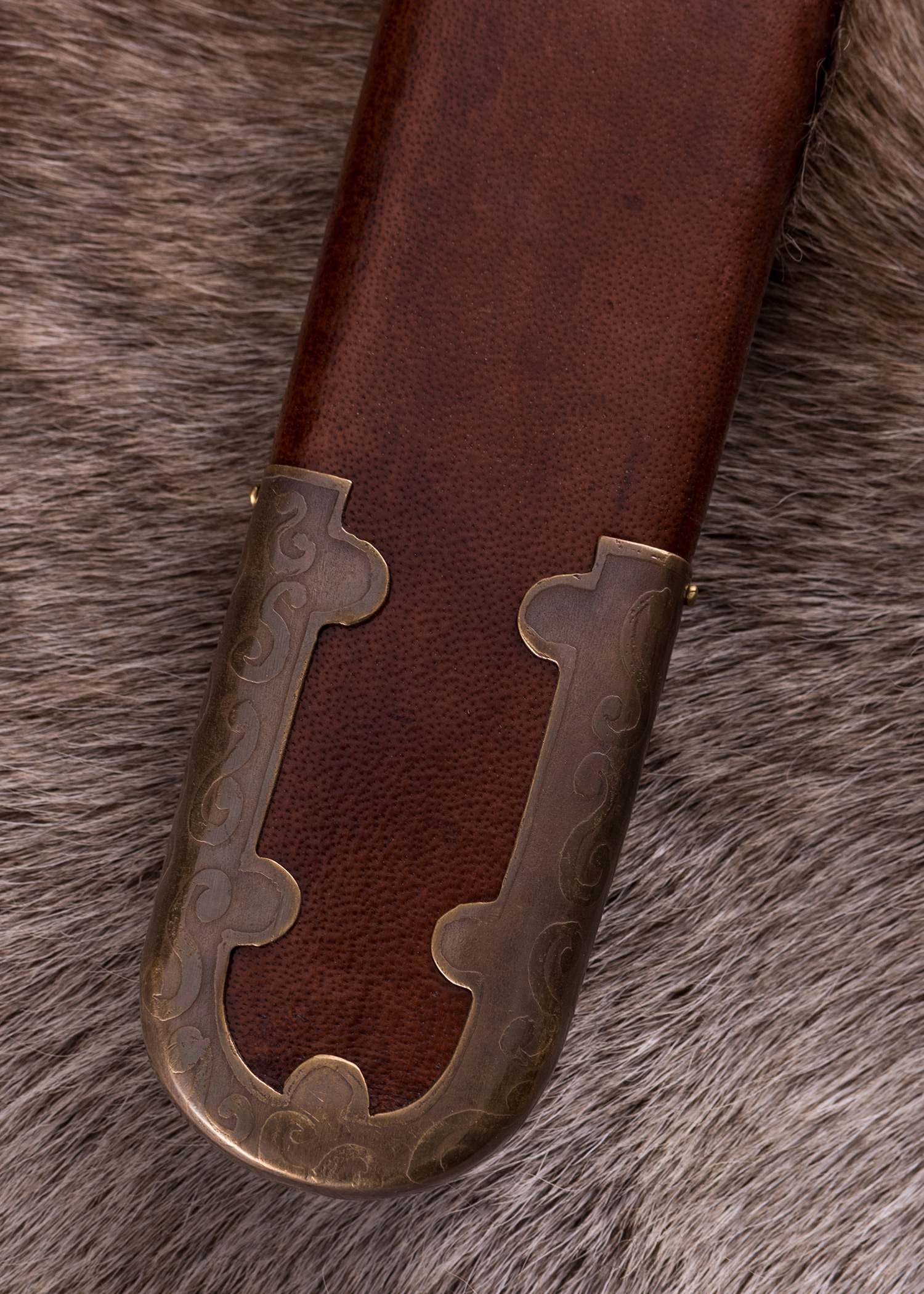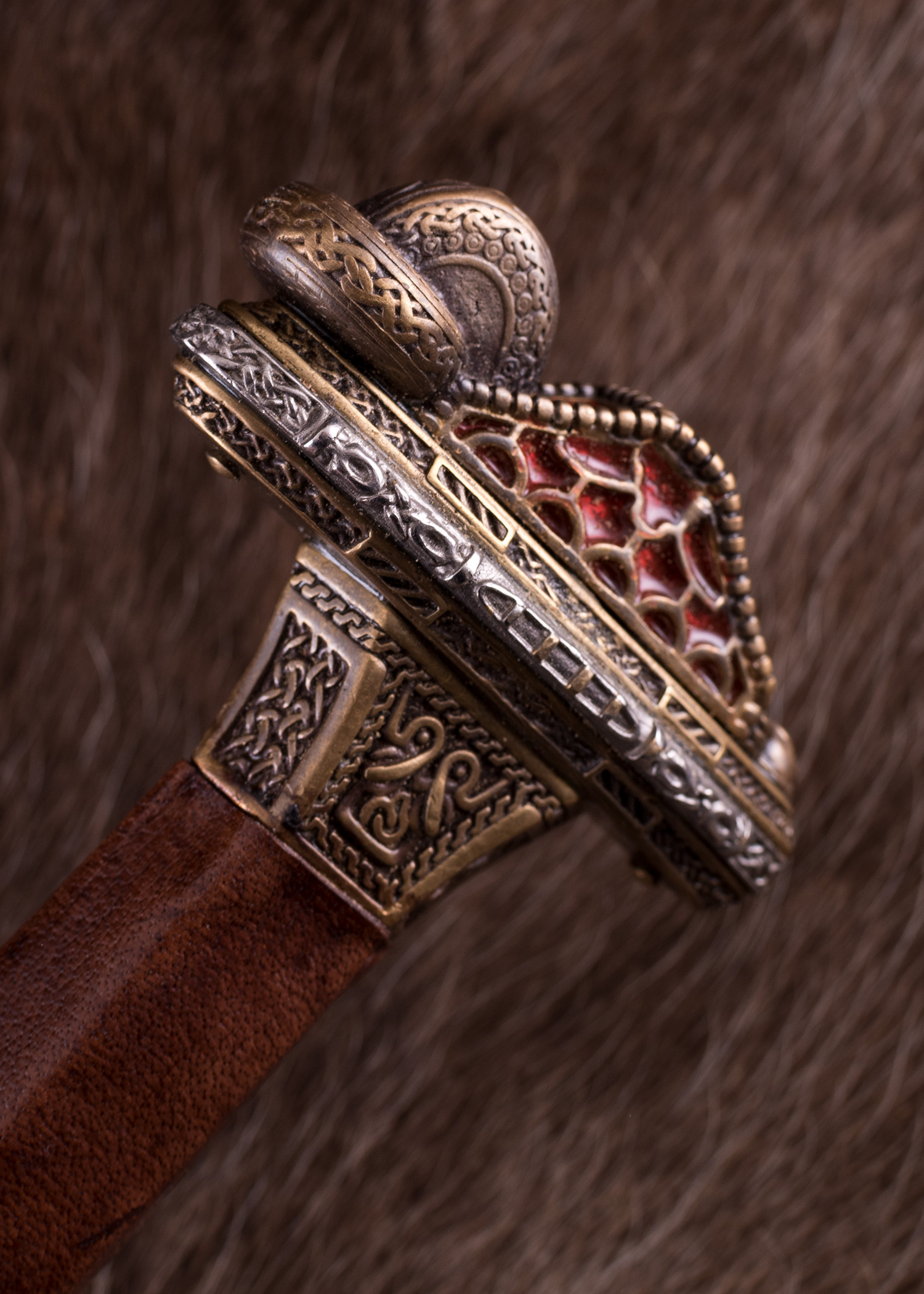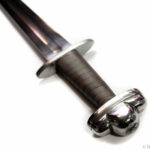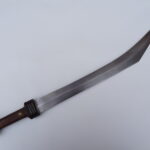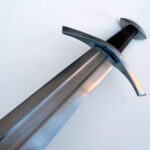Beskrivning
This beautiful Vendel Period sword is modeled on a finely crafted, richly adorned find excavated from a boat grave on a ship burial site near Uppsala, Sweden. Owing to its sumptuous, intricate detailing, the original archaeological piece is believed to have been the prestige weapon of a 7th / 8th c. Swedish chieftain, nobleman or elite warrior. Many a find attributed to the Vendel era (roughly lying between the Migration Period and the Viking Age in Swedish history) bear testimony to the high quality of the craftsmanship achievable at the time.
Shape-wise, this single-handed sword is a classic example of a Norse weapon. The double-edged blade with broad fuller is forged out of Damascus steel*. The edges are not sharpened and the blade’s full tang is riveted to the pommel.
The approx. 9 cm long, 1.5 cm thick guard and the generously sized pommel are cast from brass and closely recreate the highly detailed engraved motifs and patterns of the original artefact. The antiqued brass finish is accented by contrasting tin-plated brass bands. Just like many original examples from this time period, the pommel is composed of several parts riveted together. The pommel cap is inlaid with red enamel that replicates genuine garnets. The wooden core grip is bound in brown leather.
This Vendel one-handed sword comes complete with a brown wood-and-leather scabbard with wooden suspension loop (max. belt width 5 cm) and antiqued brass throat and chape.
Please note that this sword is not a battle ready weapon. It is designed as a collector’s or decoration/display piece and is not suited for combat reenactment. Besides its quality as a collectible, it is also perfectly suited as a prop, e.g. to complete your costume.
A regular version of this sword with EN45 spring steel blade is also available
Details:
– Material: EN45 spring steel blade (high carbon steel, not stainless), brass guard and pommel, leather-bound wooden handle
– Overall length: approx. 89.5 cm
– Blade length: approx. 73 cm
– Blade thickness: approx. 4 mm (cutting edges approx. 1 mm)
– Hilt length: approx. 16.5 cm (grip approx. 11 cm)
– Max. blade width: approx. 5 cm
– Point of balance: approx. 13 cm from the guard
– Incl. wooden scabbard with genuine leather cover and brass fittings
– Weight without scabbard: approx. 1.55 kg
– Weight with scabbard: approx. 1.9 kg
Specs may slightly vary from piece to piece.
The steel used here is not rust-proof and might show slight surface tarnishing in places. We recommend you to maintain the blade and the scabbard on a regular basis, for example using Ballistol Universal Oil, which is ideally suited for steel care.
* The terms Damascus steel, damascene or pattern welded designate a compound steel forged out of two or more different types of steel. It is named after its birthplace, the Syrian city of Damascus, a former stronghold of the patterned steel production. As a common practice, a harder high carbon steel and a milder low carbon steel are repeatedly forge welded and folded together. The high carbon steel ensures a higher hardness, a better temperability and longer lasting edge retention, whereas the milder steel confers greater blade flexibility and tensile strength. This procedure, which arose in a time where steel qualities were often low and inconsistent, enables to combine the positive attributes of the various steel grades. Besides, the different shadings generated by the varying carbon content of the alternating layers engender strikingly beautiful patterns, such as the twisted motif called Torsion Damascus pattern or the Rose Damascus pattern. Undoubtedly, these unusual patterns partly explain why inherent magical properties were attributed to the Damascus steel blades of the Middle Ages.

